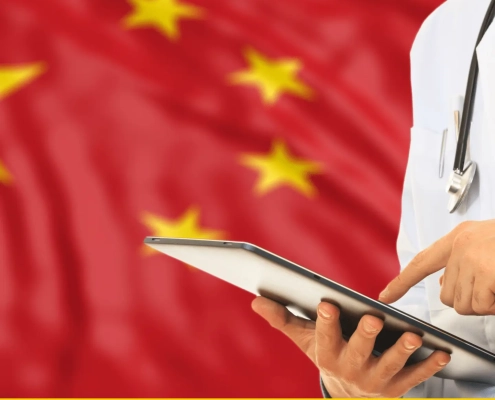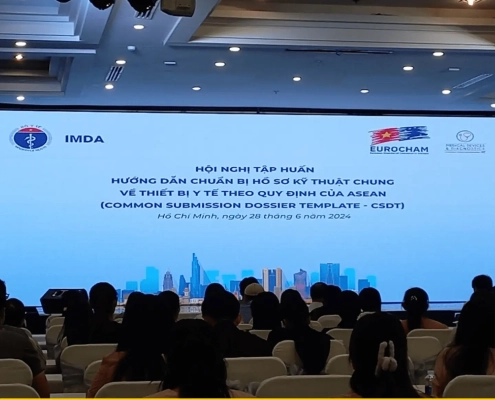Come grow with us in the US in Thailand in China in Korea in the Philippines in Taiwan in Hong Kong
Contact Us
US: +1 512 898-9222
SG: +65 3138-4148
EMAIL: Inquiry@asiaactual.com
Sign Up For Our Newsletter to Stay Informed
Thai FDA Issues New QMS Requirements for GDP, GMP, and GCP
Thai FDA Implements New QMS Requirements
Last month, the Thai FDA announced new quality systems requirements that apply to the manufacture and distribution of medical devices, and for conducting clinical trials in Thailand. Good Manufacturing Practices (GMP) and Good Clinical Practices (GCP) pertain mostly to local manufacturers whilst Good Distribution Practices (GDP) impact international manufacturers currently, or aspiring, to sell in Thailand.
Published in Gazette Volume 141 Special Section 4, copies of the Good Criteria and Practice for Importing and Selling of Medical Devices can be found here in Thai and English. Technically, requirements go into effect on January 5, 2024 for new companies while existing distributors and license holders have until January 5, 2025 to implement the first phase’s requirements.
Impact on Foreign Manufacturers
While foreign manufacturers aren’t directly responsible for complying with these requirements, it is important to remain vigilant and ensure local partners are meeting the new requirements. For example, India’s CDSCO recently began requiring all medical devices obtain an Import License prior to importing. These new requirements caught some distributors and local partners off-guard, resulting in importations being held up until they could obtain the appropriate Sales License. Best practices dictate that foreign manufacturers engage in holding their local actors accountable for compliance to ensure sales aren’t affected.
Manufacturers of medical devices being imported into Thailand should coordinate closely with their local distributor or independent license holder to confirm they’re compliant with these new requirements to maintain market access.
For further clarification, please contact Asia Actual today.
GDP Implementation Timeline
The first phase of the Thai FDA’s implementation timeline for the new QMS requirements vary depending on whether the licensee is new or has an existing Establishment License from the TFDA. It is worth noting that, new licensees will have to show compliance to Phase 1 requirements as part of obtaining their new license.
Medical device manufacturers, in conjunction with their local distributor or independent license holder, should mark their calendars for when these requirements take effect given their current license-holding status.
The new distributor QMS requirements are outlined in the Good Distribution Practices’ appendix (TFDA GDP Notification 2023). According to the Thai FDA, the new QMS stipulations are to be administered in the phases that follow:
| Phase # | New Licensee | Companies with Existing Licenses |
|---|---|---|
| 1 (Section 2, 3) | January 5th, 2025 | January 5th 2026 |
| 2 (Section 2, 3, 4) | January 1st, 2027 | January 1st, 2027 |
| 3 (Sections 1, 2, 3, 4) | January 1st, 2029 | January 1st, 2029 |
Thai FDA GDP Sections for Compliance
The new GDP requirements will be implemented in 4 phases in accordance with the following section topics.
- Section 1 Organization, Management and Responsibility
1.1 Organization and responsibility
1.2 Documentation management
1.3 Control of documents and records
1.4 Management review - Section 2 Resource Management
2.1 Personnel
2.2 Basic utilities
2.3 Cleanliness
2.4 Pest control - Section 3 Supply Chain and Specification
3.1 Authorization
3.2 Contact channel
3.3 Receiving, storage, stock rotation and delivery of medical devices
3.4 Control of medical devices that no longer meet specifications and return of medical devices
3.5 Disposal of medical devices
3.6 Distribution records and traceability
3.7 Calibration
3.8 Special requirements for active medical devices
3.9 Installation and servicing activities
3.10 Outsourced activities
3.11 Counterfeit, adulterated, unwholesome and tampered of medical devices - Section 4 Audit and Surveillance
4.1 Complaint handling
4.2 Reporting of Medical device defect, Adverse event, Field safety corrective action (FSCA) and recall
4.3 Internal audit
4.4 Corrective and preventive actions
QMS Evaluations to be Completed by CABs
Presently, the Thai FDA has yet to identify the Conformity Assessment Bodies (CABs) who will audit and certify compliance to new QMS regulations. To prepare, Medical Device manufacturers, local distributors, and independent license holders are strongly urged to take these new sections under advisement for when CABs are designated.
QMS Guidance Documents: GDP, GMP, and CCP
The Thai FDA released new guidance in early January, outlining the requirements for (1) GMP, (2) GDP, and/or (3) GCP. More information, along with links to the notifications, can be found below.
- Good Manufacturing Practice (GMP) is a set of guidelines established by regulatory agencies that govern the manufacturing process of medical devices to ensure their quality and safety. [Link, PDF]
- Good Distribution Practice (GDP) describes the minimum standards that a wholesale distributor must meet to ensure that the quality and integrity of medicines and medical devices is maintained throughout the supply chain. Markedly, GDP also includes post-market surveillance, which safeguards consumer protections and regulations whilst ensuring the traceability of prescribed follow-up actions and timelines. [Link, PDF, English Translation]
- Good Clinical Practice (GCP) is an international ethical and scientific quality standard for designing, recording and reporting trials that involve the participation of human subjects. Compliance with this standard provides public assurance that the rights, safety and wellbeing of trial subjects are protected and that clinical-trial data are credible. [Link, PDF]
.
Come Grow with Us
Please contact Asia Actual with any questions or requests for support in Thailand. We have offices staffed by experienced, bilingual regulatory and commercial professionals in the major capital cities of Asia. Our mission is to provide a stable, reliable local platform so that our clients can grow their sales in challenging Asian markets.
.




